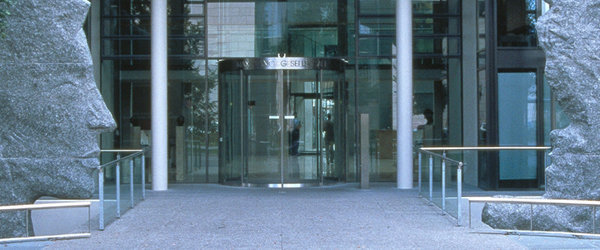
Max Planck Society
"Insight must precede application" (Max Planck, 1858 - 1947)
The Max Planck Institute for Brain Research is one of about 80 research institutes of the Max Planck Society for the Advancement of Science e.V. (MPG). The MPG is an independent, non-profit research organization which seeks to promote basic research in the service of the general public. It is financed through public funds from the federal and state governments. However, the MPG is not a state-run institution, but a registered association.
The Max Planck Institutes mainly conduct research on new, innovative topics of natural, life and social sciences as well as humanities that are not, or not yet, investigated at universities. Primarily, it is basic research: The scientists get to the bottom of things, study how they function and want to understand and explain the world. In order to react flexibly to changed demands and to be at the cutting edge of research, the MPG recruits outstanding scientists to existing institutes, redefines the research areas of some institutes, founds or closes institutes.
The individual institutes perform their scientific research freely and independently. Research topics cover the fields of natural and life sciences (Section of Biology and Medicine, Section of Chemistry, Physics and Technology), social sciences and humanities (Section of Humanities). In particular, the institutes of the Max Planck Society explore new and innovative research areas that are not -or not yet- covered at German universities. Therefore, the MPG recruits outstanding scientists from all over the world who redefine the research areas at existing institutes or even promote the creation of new institutes as the needs arise. Scientists within the MPG benefit from the excellent working conditions at the individual institutes and enjoy great freedom in the design of their research.
For appointments and research funding, the scientific quality of the researchers and the institutes plays an essential role. It is evaluated every two to three years by an international, independent scientific advisory board. The interface to the general public is represented by the Board of Trustees which is comprised of representatives of press, industry and politics.